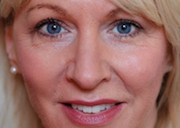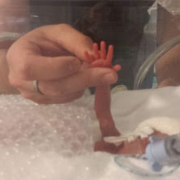How could anyone object to teaching schoolgirls to say ‘no to sex’?
 MPs have voted 67-61 in favour of a bill introduced by Conservative MP Nadine Dorries, which wants schools to ensure that sex education for girls includes ‘information and advice on the benefits of abstinence from sexual activity’.
MPs have voted 67-61 in favour of a bill introduced by Conservative MP Nadine Dorries, which wants schools to ensure that sex education for girls includes ‘information and advice on the benefits of abstinence from sexual activity’.
The ten minute rule bill proceeds to a second reading next January but is unlikely to become law without Government support.
Dorries, MP for Mid Bedfordshire, said all schoolgirls should be given lessons in ‘how to say no’ as part of a new-style sex education curriculum.
Speaking in the Commons, she insisted society was ‘saturated in sex’, with pupils currently being shown how to put condoms on bananas and self-diagnose diseases but not to reject sexual advances altogether.
The early sexualisation of girls was being fuelled by television references to sex, newsagents stocking pornographic magazines and high street stores that sell provocative items such as padded bikinis for seven-year-olds, she added.
Labour MP Chris Bryant, who introduced his own Sex and Relationship Education Bill in 2010 which sought comprehensive Sex and Relationship Education (SRE) in schools, spoke in the House of Commons to oppose the abstinence bill.
The British Humanist Association (BHA) has described the vote as ‘disheartening’ and has stated that ‘abstinence education does not work’.
I note that the Family Planning Association guidance says the same:
‘There is no evidence that abstinence-only education programmes delay the initiation of sex, increase a return to abstinence or decrease the numbers of sexual partners.’
These sorts of claims have always struck me as rather bizarre. There are many faith-based and ethnic communities in the UK which have very low levels of unplanned pregnancy and sexually transmitted disease as the consequence of lower levels of promiscuity.
The FPA and BHA seem blind to this simple fact and instead cherry pick ‘evidence’ to back their ideological convictions that abstinence is impossible and that you cannot change behaviour through good education. All rather defeatist.
The passing of the bill sparked a storm of protest on Twitter, with many users attacking its focus on girls at the expense of boys. At one point, Dorries was among the top ten most discussed topics worldwide on the social networking website.
The full text of the bill read as follows:
‘Sex Education (Required Content): That leave be given to bring in a Bill to require schools to provide certain additional sex education to girls aged between 13 and 16; to provide onhealthy cymbalta that such education must include information and advice on the benefits of abstinence from sexual activity; and for connected purposes.’
The debate and result is reported on the BBC website and you can read the full debate in Hansard.
Nadine Dorries gives her own comments on her blog.
Health Minister Anne Milton courted controversy earlier this year when she was reported as not backing an abstinence approach. But she has since claimed that she was misrepresented.
There were very few MPs present at today’s vote so it will be interesting to see if the Cameron government supports the bill when it returns.
The last government’s policy on preventing teenage pregnancy (condoms and morning after pills) has left us with a legacy of unplanned pregnancy, sexually transmitted disease, abortion and broken relationships.
In an instructive piece on the CMF website (titled ‘Quangos for the bonfire’) GP Trevor Stammers applauds the dissolution of the Teenage Pregnancy Independent Advisory Group (TPIAG) and the Independent Advisory Group on Sexual Health and HIV (IAGSH).
Since TPIAG was set up in 1998 to halve the national under-18 conception rate by 2010, it has put most of its efforts into the promotion and provision to teenagers of the very contraceptives which, when they fail, then constitute the commonest reason for requesting abortion.
The IAGSH (March 2003) equally adopted an ideological approach which consistently ignored evidence-based practice, such as studies indicating that abstinence-only education programmes can reduce both teenage conception, abortion and STI rates.
The vast majority of members of both TPIAG and IAGSH had declared interests in the contraception and abortion industries. Baroness Gould, the chair of both, was President of the fpa and chaired a pro-abortion lobby group in Parliament.
Like Baroness Gould, many of the members of one of these two ‘independent’ groups were also members of the other; whereas there were no representatives at all with any experience of alternative strategies such as the highly successful ABC programmes in Uganda or Love for Life programmes in Northern Ireland, Lovewise in Newcastle or Love2Last in Sheffield.
The Coalition Government says it wants to work with charities and churches across the whole spectrum. Supporting the work of these groups would be a good step in the right direction.
I wish Nadine Dorries well and hope that she finds the support she is seeking from the government.












Leave a Reply
Want to join the discussion?Feel free to contribute!